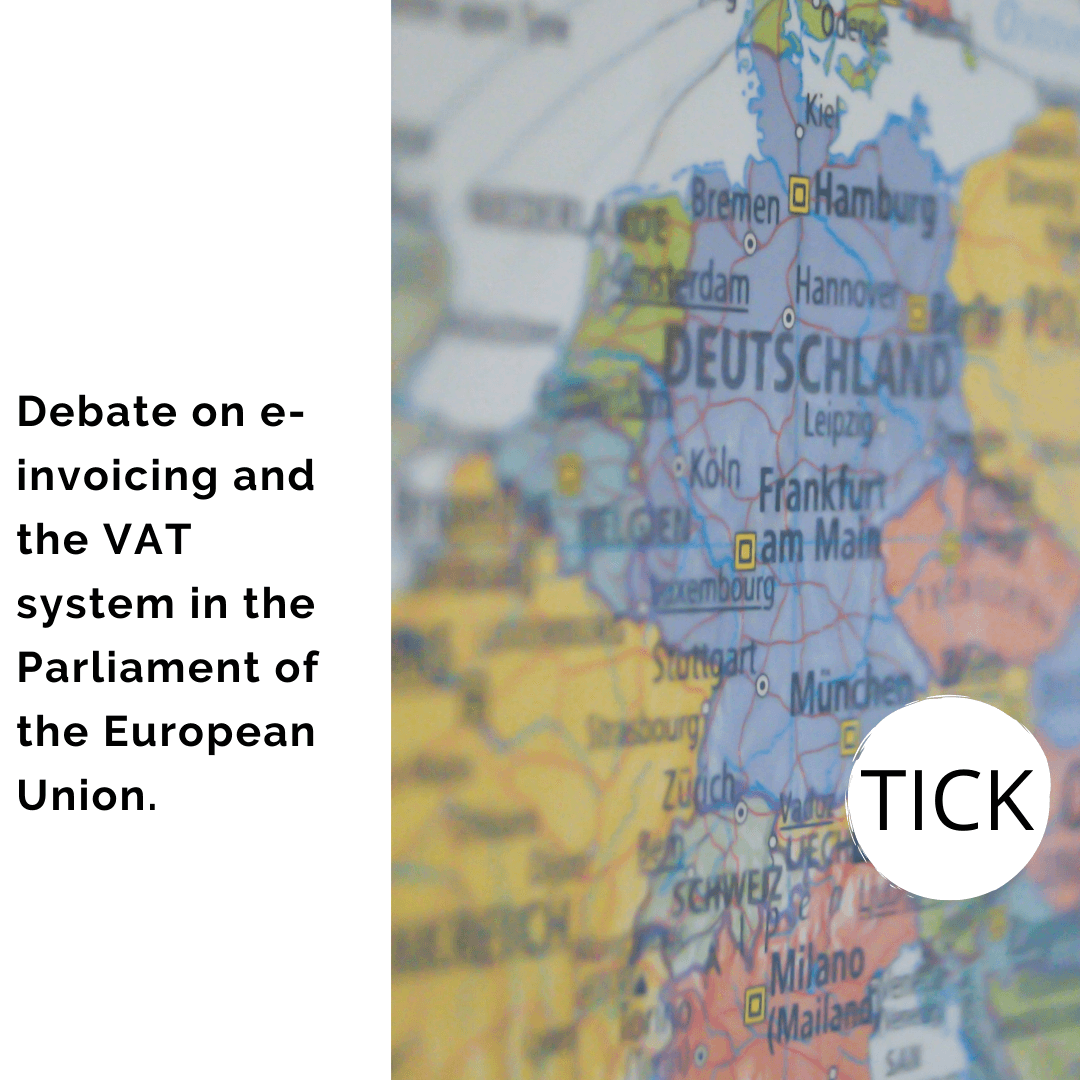On February 16, 2022, the European Parliament voted in favor of pan-European harmonization of e-invoicing and adopting the final reform of the VAT system to:
- facilitate cross-border interoperability;
- ensure legal compliance,
- increase the transparency of commercial transactions; and
- reduce fraud and errors;
Parliament acknowledges that Member States are already adopting various forms of e-invoicing and live reporting. But it should be coordinated to promote ease of adoption by firms and efficient tax data exchange. Each parliamentary vote is not binding on the EU Member States.
Parliament reaffirmed its support for reforms of the current “provisional” origin-based VAT rules for B2B goods transactions. This was perfect for tax frauds using a zero intra-community supply process to collect billions of VAT. And it creates complexity and costs for law-abiding companies. The proposed target VAT system for 2018 proposes a transition to a destination-based model, supported by easier ways of reporting and paying this VAT. However, many Member States have reservations about a proposal that is effectively blocked.
Proposed EU requirements for digital reporting
EU VAT reforms in the digital age include a channel for harmonized digital reporting requirements (DRR) and continuous transaction control (CTC).
This was due to the proposed EU tax action plan for 2020 on a fairer and more efficient EU tax system.
Europe e-invoicing and live reporting
| Country | Date | Comments |
| EU e-invoice proposals | 2024 | Live transaction reporting proposal |
| Albania | Jan. 2021 | Authorized e-invoice software and pre-billing |
| Belgium | TBD | Gradual introduction of B2B e-invoices |
| Bulgaria | 2023 | Public consultation on the e-invoice model before check-in |
| Finland | Arp. 2020 | The customer can request B2B e-invoices |
| France | Lipiec 2024 | E-invoice before billing |
| Germany | 2024 (?) | New government e-invoice “as soon as possible” to fight fraud |
| Greece | Oct. 2021 | E-invoice and e-books |
| Hungary | July 2018 | Live RTIR invoice reporting. No initial government check is required |
| Italy | Jan. 2019 | SdI e-invoicing in advance |
| Ireland | TBC | Public consultations are underway |
| Latvia | Jan. 2025 | B2B e-invoices based on PEPPOL |
| Poland | Jan. 2023 | Voluntary January 2022; compulsory 2023. Government model of initial check-in |
| Portugal | July 2021 | Certified invoicing software for non-residents |
| Jan. 2023 | ATUD numbering on invoices | |
| Romania | 2022 | Implementation of e-invoicing RO |
| Russia | Jan. 2023 | Government e-invoicing in advance; full B2B 2023 |
| Serbia | May 2022 | Government e-invoicing in advance |
| Slovakia | Jan. 2023 | Government e-invoicing B2B and B2C advance |
| Slovenia | 2023 ? | The e-SLOG B2B offer is blocked |
| Spain 1 | July 2017 | SII Live Invoice and Accounting Reporting |
| Spain 2 | 2023-25 | e-invoice pre-settlement model as a supplement to SII |
| Sweden | 2024? | A review of live digital reporting options has begun |
| Turkey | Jan. 2014 | e-invoice e-Fatura and e-Arşiv |
| Great Britain | Arp. 2022 | MTD for VAT extended to 1.1 million taxpayers |


